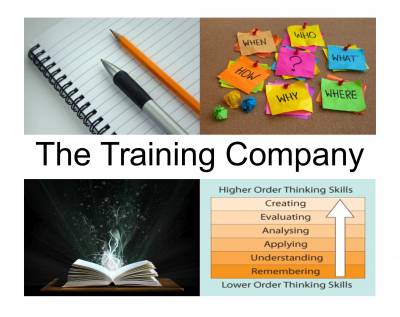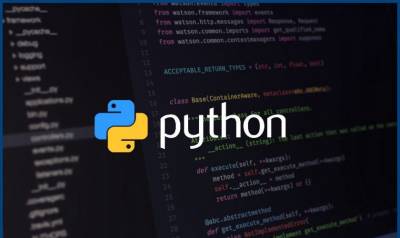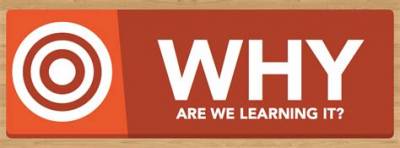Table of Contents
Python Courses
Physical Classroom
Instructor Led Online Classes
The python book by Khawar Nehal ( PDF )
The python book by Khawar Nehal in English ( ODT )
Why learn Python ?
Learning Python offers numerous benefits, making it a popular choice among programmers and individuals interested in computer science. Here are some key advantages of learning Python:
1. Easy to Learn and Read: Python has a simple and readable syntax that emphasizes code readability and clarity. This makes it easier for beginners to grasp the language and for experienced programmers to write and maintain code quickly.
2. Versatility: Python is a versatile language that can be used for a wide range of applications, including web development, data analysis, scientific computing, artificial intelligence, machine learning, automation, and more. It provides extensive libraries and frameworks specific to various domains.
3. Large and Active Community: Python has a large and active community of developers who contribute to its growth, provide support, and create useful libraries and frameworks. This active community ensures that Python stays relevant and up-to-date with the latest trends in technology.
4. Extensive Libraries and Frameworks: Python offers a rich ecosystem of libraries and frameworks, such as NumPy, pandas, TensorFlow, Django, Flask, and many more. These libraries and frameworks provide pre-built functions and tools, saving time and effort in development.
5. Cross-Platform Compatibility: Python is a cross-platform language, meaning it can run on various operating systems such as Windows, macOS, Linux, and even mobile platforms. This makes it highly accessible and convenient for developers to write code that can be deployed across different environments.
6. Strong Support for Data Analysis and Visualization: Python has become one of the leading languages for data analysis and scientific computing. Libraries like NumPy, pandas, and Matplotlib provide powerful tools for handling and visualizing data, making it ideal for data scientists and researchers.
7. Career Opportunities: Python's popularity has resulted in a high demand for Python developers across industries. Learning Python opens up various career opportunities, whether you're interested in web development, data science, machine learning, or software engineering.
8. Integration Capabilities: Python can easily integrate with other programming languages such as C, C++, Java, and more. This allows developers to leverage existing code and libraries from other languages and build upon them using Python.
9. Increased Productivity: Python's simplicity and extensive libraries enable developers to write code more efficiently and quickly. Its focus on readability and minimalistic syntax reduces the time required for coding, debugging, and maintenance.
10. Open Source and Free: Python is an open-source language, which means it is freely available and can be used, modified, and distributed by anyone. This open-source nature encourages collaboration and fosters innovation within the Python community.
These benefits, among others, make Python an excellent choice for beginners and experienced programmers alike, empowering them to develop a wide range of applications efficiently and effectively.
Certificates
Printed Physical Certificate
Verifiable online
Types of people who can benefit from learning python.
Python is a versatile programming language that can be beneficial for various types of people. Here are some categories of individuals who may find learning Python advantageous:
1. Beginners: Python is often recommended as a beginner-friendly programming language. Its clean syntax and readability make it easier to understand and learn the fundamentals of programming.
2. Students: Python is widely used in educational institutions to teach programming concepts. It can be valuable for students studying computer science, data science, artificial intelligence, or any field that involves coding.
3. Software Developers: Python offers a robust set of libraries and frameworks that can accelerate the development process. It is suitable for building web applications, desktop applications, scientific software, and more.
4. Data Scientists: Python has become the de facto language for data analysis and machine learning. Popular libraries like NumPy, Pandas, and scikit-learn provide powerful tools for data manipulation, analysis, and modeling.
5. Researchers: Python's simplicity and extensive library ecosystem make it a popular choice for researchers in various domains. It can be used for data analysis, prototyping, simulation, and visualization, among other research tasks.
6. Web Developers: Python frameworks such as Django and Flask enable the development of dynamic and scalable web applications. Python's ease of use and wide adoption make it a valuable skill for web developers.
7. System Administrators: Python is commonly used in scripting and automation tasks for system administration. It can help automate repetitive tasks, manage infrastructure, and interact with APIs.
8. Entrepreneurs: Python's simplicity and versatility make it an excellent choice for entrepreneurs who want to quickly develop prototypes or build minimum viable products (MVPs). It allows for rapid development and iteration.
9. Scientists and Engineers: Python's rich scientific computing ecosystem, including libraries like SciPy and Matplotlib, make it suitable for scientific computing, simulations, and data visualization.
10. Anyone interested in programming: Python's user-friendly nature and vast community support make it an appealing language for anyone interested in learning programming, irrespective of their background or profession.
Ultimately, Python's broad range of applications and its user-friendly syntax make it a valuable language for a wide variety of people, from beginners to seasoned professionals.
Python courses, covering both introductory and more advanced topics relevant to Python-related job roles:
Beginning python and advanced python courses by the training company.
Course One: Beginning Python
Course Overview:
This course is designed for beginners who have little to no experience with programming. Through hands-on exercises and practical examples, students will learn the fundamentals of Python programming language.
Class 1: Introduction to Python
- Overview of Python
- Installing Python
- Writing and executing a simple Python program
- Understanding variables and data types
Class 2: Control Flow and Loops
- Conditional statements (if, elif, else)
- Loops (for loops, while loops)
- Practice exercises
Class 3: Lists and Tuples
- Understanding lists and tuples
- Accessing elements
- List manipulation
- Tuple immutability
Class 4: Dictionaries and Sets
- Introduction to dictionaries and sets
- Working with dictionary keys and values
- Set operations
Class 5: Functions
- Defining and calling functions
- Parameters and return values
- Scope of variables
Class 6: Modules and Packages
- Understanding modules and importing them
- Creating and using packages
- Exploring the Python Standard Library
Class 7: File Handling
- Reading from and writing to files
- Using context managers (with statement)
- Error handling with try-except blocks
Class 8: Introduction to Object-Oriented Programming (OOP)
- Basics of OOP
- Classes and objects
- Attributes and methods
Class 9: Inheritance and Polymorphism
- Extending classes using inheritance
- Method overriding
- Polymorphism in Python
Class 10: Exception Handling
- Handling exceptions in detail
- Custom exception classes
- Best practices for exception handling
Class 11: Introduction to Regular Expressions
- Overview of regular expressions
- Using regex in Python
- Pattern matching
Class 12: Debugging and Testing
- Debugging techniques
- Unit testing with unittest module
- Test-driven development (TDD)
Class 13: Introduction to Data Analysis with Pandas
- Overview of Pandas library
- Series and DataFrame objects
- Basic data manipulation
Class 14: Introduction to Data Visualization with Matplotlib
- Overview of Matplotlib library
- Creating basic plots
- Customizing plots
Class 15: Introduction to Web Scraping with BeautifulSoup
- Overview of web scraping
- Using BeautifulSoup for scraping
- Scraping a simple webpage
Class 16: Final Project
- Students will work on a small project to apply the knowledge gained throughout the course.
Course Fees ( For the course beginning python listed above ) :
PKR Rs 30,000
LTC 1.1968071394641624
NANO XN0 : 72.48828106122843
CNY : 772.80
USD 107.40
Payment methods accepted :
Cheque, Credit card, Debit card, Cash, nano, LTC, bank transfer, payoneer, NayaPay.
Guarantee : If you are not satisfied by the course, then you can request your money back within 14 days of the time you started the course. The start time is of the start time of the first lecture, physical class, or online course.
You do not have to provide any reason for requesting the money back. Feedback is optional.
Any financial instrument, payment, transaction or bank charges required to collect and refund the money shall be deducted from the fees.
© Applied Technology Research Center 2023. All Rights Reserved.
All content included in or made available through this page, such as text, graphics, logos, icons, images, sounds, music, digital downloads, data compilation, software, and documents is the exclusive property of Applied Technology Research Center or its content suppliers and is protected by the various applicable trade dress, copyright, trademark, patent, and other intellectual property and unfair competition laws in the Pakistan and internationally. All rights not expressly granted to you via these terms are reserved and retained by Applied Technology Research Center or its licensors, suppliers, publishers, rightsholders, or other content providers.













